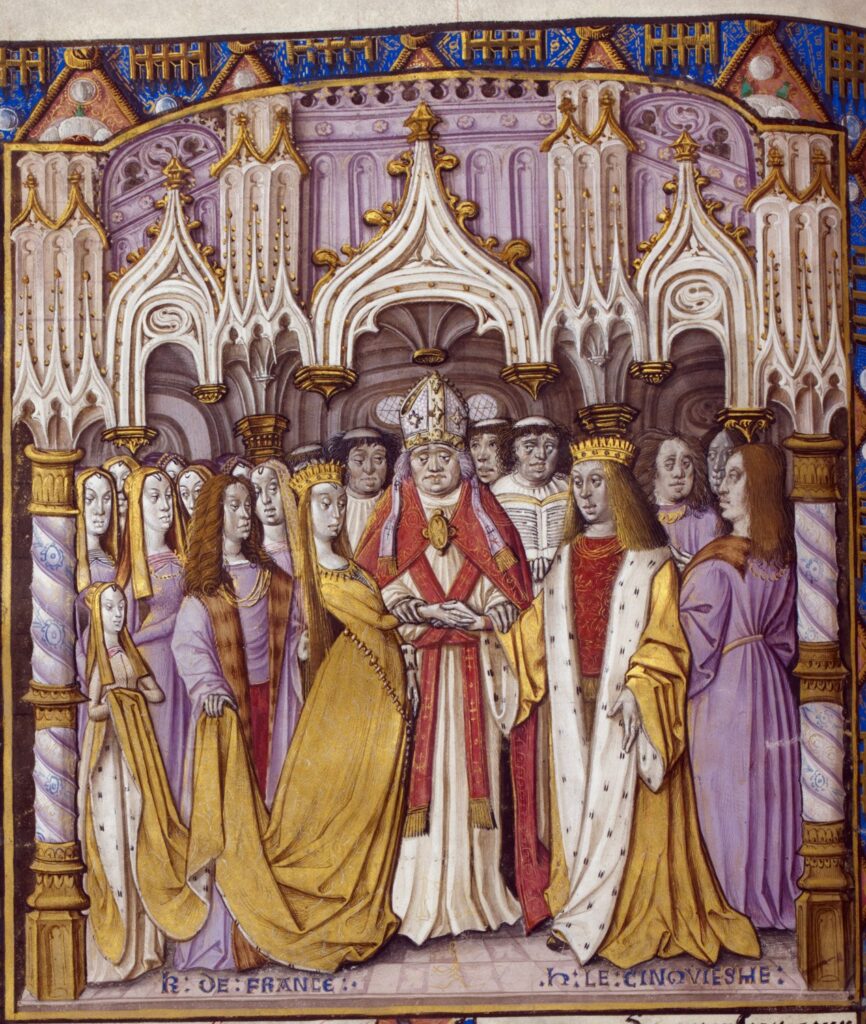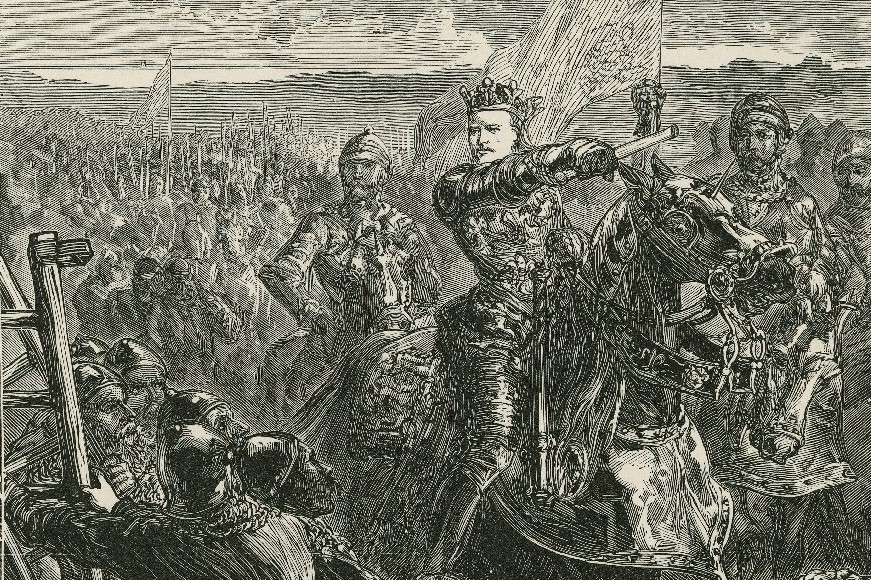King Henry V, England’s Greatest Ruler, Gives Charles a Lot To Live Up To
The victor of Agincourt was the ‘acme of kingship’ who nearly conquered Paris.

‘Henry V: The Astonishing Triumph of England’s Greatest Warrior King’
By Dan Jones
Viking, 432 pages
Six hundred years before Britain voted for independence from Europe, the Sceptered Isle came the closest it ever has to attaching all of France to its realm. The historian Dan Jones’s “Henry V” argues that if not for an inconveniently timed bout of dysentery Paris might be lousy with bangers and mash. Henry V long ago received the Shakespeare treatment. Now, he takes his place as the greatest king to ever sit the Coronation Chair.
The Tudors often take center stage these days — witness Hillary Mantel’s “Wolf Hall” trilogy and Broadway’s “Six” — but Mr. Jones bids for the primacy of their predecessors, the Lancasters and Plantagents. Originally from Anjou, they held the English throne between 1154 and 1485, when Richard III was slain at the Battle of Bosworth Field. The War of the Roses bled out the Houses of York and Lancaster. That’s when the Tudors rose on a river of blood.
Mr. Jones’s latest — he’s written histories of the Plantagenets and the War of the Roses — dials in on a juncture drenched in drama. It is a tale of three kings. Richard II is attuned to the pageantry but prone to miscalculation, as when he was gallivanting in Ireland and a lord and cousin he exiled to France, Henry Bolingbroke, crossed the Channel to regain his patrimony. He took that and the Crown besides, ruling as King Henry IV.

Henry IV was, since the Norman Conquest of three centuries prior, the first king of England for whom English was a mother tongue. An adventurer who had battled the pagans of the Lithuanian forests and made pilgrimage to Jerusalem, he reigned for 14 uneasy years — a usurper’s seat is never too comfortable. An uprising in Wales under the guerrilla leader Owain Glyndŵr was a crisis that he would pass to his son, Henry V.
This history could all feel remote, but Mr. Jones reports it as if it were headline news. His use of the present tense is an inspired maneuver to bring the reader close to the grain of a kingdom convulsing. Henry V had an unusually long apprenticeship — echoes of King Charles III hanging around Highgrove for decades — and Mr. Jones convincingly claims that the lessons learned while waiting in the wings were used to great effect.

“Henry V” is populated with sensational characters of the kind medieval times produced in abundance. There is Sigismund of Luxembourg, king of the Germans, “grand but perpetually broke; full of energy but not always subtle in its deployment.” Old heroes “inspire songs that are sung at feasts where the memory of the doomed struggle for Welsh independence is kept alive.” Royal homage is paid to the Holy Prepuce, a snatch of Christ’s foreskin.
Henry V ruled for only nine years, but Mr. Jones writes that subsequent generations saw him as “the acme of kingship: the man who did the job exactly as it was supposed to be done.” Something like an English Alexander, Churchill called him “a gleam of splendor” in the “dark, troubled story of medieval England.” His conquest of the French crown and the northern half of the French kingdom was a high water mark for English might.
Henry V’s finest moment was the Battle of Agincourt. On October 25, 1415, he led the English into battle against a numerically superior French force. Shakespeare has him address his troops as “We few, we happy few, we band of brothers” and declare that “For he to-day that sheds his blood with me shall be my brother … And gentlemen in England now abed shall think themselves accursed they were not here.” Henry fought cheek to jowl and hand to hand.

Henry is not just a warlord laying siege to cities. He “pores over government documents more intensely than any king of England before him, annotating them and sometimes even writing them in his own hand.” He is a king “with a “begging bowl and a menacing stare,” borrowing sums from clergy and tradesmen, lords of the realm, foreign bankers, and merchants at the City of London. A pious king, he promises his foes the Deuteronomic treatment.
France in these years was ruled by a mad king, Charles VI, and riven by civil war. Henry saw opportunities when they emerged, and his success was so thorough that at the Treaty of Troyes he was named regent of France and heir to that kingdom. Those gains would not last, but Henry’s legacy would. The Royal Family calls him “stern and ruthless” and a “brilliant general.” The French are lucky that there were many Henrys, but only one of his eminence.

